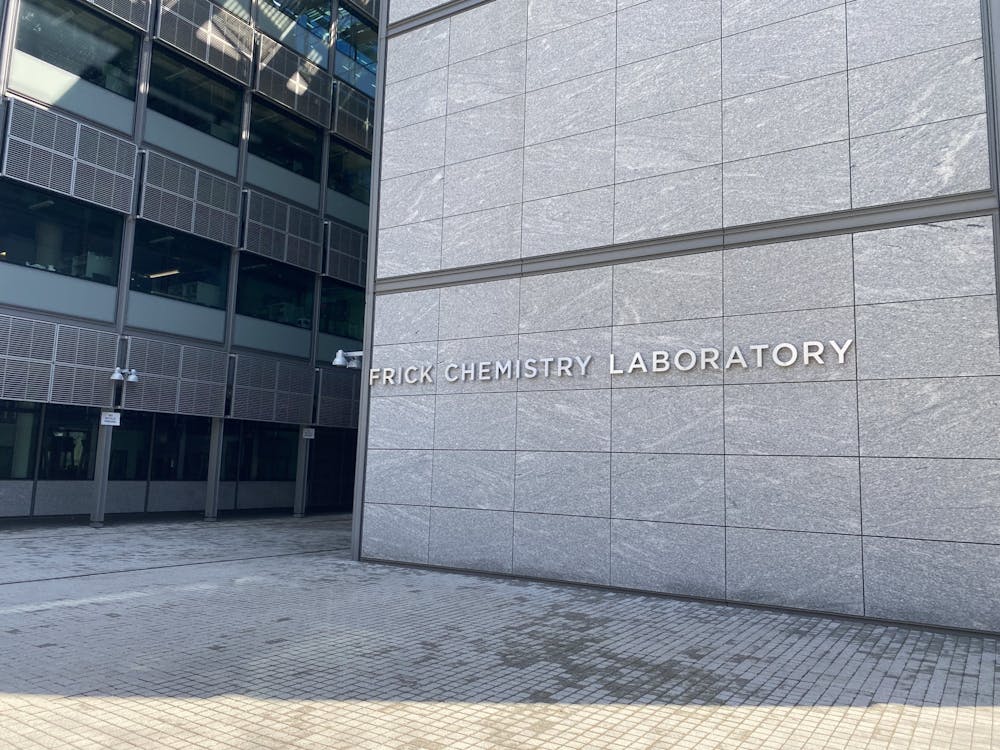The University has partnered with the Ludwig Institute for Cancer Research to open a new branch at Princeton — one that will specialize in cancer metabolism and how diet impacts our understanding of cancer.
Professor of Chemistry Joshua Rabinowitz will serve as branch director, working alongside Associate Director Eileen White and Yibin Kang, principal investigator and founding member of the branch.
White is a professor of molecular biology and biochemistry at Rutgers University while Kang is a molecular biology professor at Princeton.
“Ludwig chose Princeton because of our renowned strength in disciplines of critical importance to the study of cancer metabolism, including basic cancer research, metabolomics, genomics, biology, and the computational and physical sciences,” University Provost Deborah Prentice said in Tuesday’s announcement.
“This new partnership goes to the heart of what Princeton is all about,” she continued. “It draws on Princeton’s breadth of excellence in fundamental science to drive real-world breakthroughs at the cutting edge of cancer care.”
Rabinowitz, the branch director, spoke with The Daily Princetonian about the science behind his research.

“Cancer is in part a metabolic disease, and our metabolism is dictated largely by our activity and diet, yet the potential to prevent or treat cancer by better dietary choices has been underexplored,” he said.
“We think there's the opportunity to make a profound difference in both the incidence of cancer and the outcomes for cancer patients by understanding the relationship between metabolism, diet, the immune system, and cancer,” he added.
The Princeton branch will join nearly a dozen other Ludwig locations, including those at Harvard, MIT, Stanford, the University of Chicago, Johns Hopkins University, and UC San Diego.
Research will focus on three central topics: “dietary strategies to prevent and treat cancer; how bodies inadvertently support tumor growth and metastasis; and the interplay between a patient’s metabolism, gut microbiome and anti-cancer immune response.”

According to Rabinowitz, there are many interesting possibilities for diet-related cancer research, many of which are already underway.
“My lab is currently engaged in a clinical trial testing the combination of ketogenic diets and chemotherapy for pancreatic cancer,” he explained. “Results in mice show that the therapeutic benefits of chemotherapy are augmented three times on a ketogenic diet.”
“We're hoping that we'll see similar benefits in human patients,” he said.
The Ludwig Princeton Branch will work in tandem with RWJ Barnabas Health and the Rutgers Cancer Institute of New Jersey, as well as other institutions in the tri-state area, to apply research discoveries to clinical practice.
White is also Rutgers Cancer Institute’s deputy director and chief scientific officer.
“I've been fortunate to have the opportunity to work with Eileen and her lab for many years,” Rabinowitz said.
He explained instances when they previously collaborated, including joint work on studying how autophagy — the self-cannibalization of cells, a normal body process that can also promote tumor growth — impacts cancer outcomes.
“We will continue to count on her wisdom in understanding the fundamental biology of cancer and her capacity to build exciting new models, and she'll continue to count on us to build new measurement technologies that provide insight into those models,” he said.
According to the announcement, the branch will also provide educational and research opportunities for postdocs, graduate students, and undergraduates at Princeton.








